Having been infertile for nearly 10 years, having both fallopian tubes removed, Ms. TQH (42 years old) also suffered from endometritis, an allergic constitution, and 10 previous embryo transfers at other infertility hospitals all failed. Ms. H. came to the Center for Assisted Reproduction, Tam Anh General Hospital, Ho Chi Minh City (IVFTA-HCM) in her last hope.
Assessing the rather complicated case, Master, Doctor Giang Huynh Nhu, Director of IVFTA-HCMC and colleagues applied many of the most modern examination and treatment methods for her.
Based on the results of the ovarian and uterine ultrasound and many specialized tests, Dr. Nhu decided to apply a very mild ovarian stimulation regimen for the patient to save costs and minimize health effects.
In the first cycle, she created 3 day 5 embryos for in vitro fertilization (IVF). Artificial intelligence (AI) technology helps doctors have full information to choose the highest quality day 5 embryo.
The hysteroscopy system and advanced tests help doctors evaluate the uterus comprehensively, choose the best antibiotics to control endometritis, and then choose the optimal time for embryo transfer. As a result, Ms. Hoa conceived successfully on the first embryo transfer and gave birth to a healthy baby.
Without modern advanced techniques, especially the application of artificial intelligence (AI), it is very difficult for elderly patients with few eggs, no sperm, and especially those with repeated implantation failures to have children.
Another case of successful IVF with zero sperm count was also largely due to the effective application of artificial intelligence.
Mr. HTH (30 years old) was diagnosed with azoospermia (no sperm) during a premarital health check-up, meaning he could not "have children".
But when he arrived at Tam Anh General Hospital, H. was assigned to perform a microsurgery procedure to search for sperm using a microscope with a magnification of up to 200 times (micro-TESE), and found 5 healthy sperm. This small number of sperm was frozen using vitrification technique, storing a small number of sperm.
His wife had low ovarian reserve, so she underwent multiple ovarian stimulations, collected eggs, and fertilized to create 3 embryos. All the experience and dedication of doctors, technicians, and artificial intelligence embryo culture technology were applied, helping to minimize the risk of embryo damage through the intracytoplasmic sperm injection (ICSC) process.
The embryos were raised in an environment simulating the mother's uterus with a specialized 360-degree camera, AI software to evaluate and screen the best embryos. As a result, after only 6 months of infertility treatment, Ms. Ha became pregnant and prepared to welcome her baby.
Doctor Nhu said that in the past, when there were no modern advanced techniques, especially the application of artificial intelligence AI, it was very difficult for elderly patients with few eggs, no sperm, especially those with multiple failed implantations as above to have children.
But after 25 years of applying infertility treatments, many parents were overwhelmed with happiness when welcoming their first child.
“The 25 years of 'transformation' of the Vietnamese reproductive support industry is not only a journey to improve the qualifications of doctors and nurses, but also a journey to upgrade technology and techniques from primitive to modern. We have equal access, even ahead of many countries in the region in terms of machinery and technology in examining and treating long-term infertility, helping Vietnam's IVF success rate to be among the highest in the world,” Dr. Nhu shared.
The inevitable trend of IVF is the application of technology. At the IVFTA-HCMC center system, patients are ultrasounded, have their uterus and fallopian tubes photographed, and tested with the most modern equipment, integrating artificial intelligence software to provide comprehensive and in-depth assessments. From there, doctors accurately diagnose the disease condition and the cause of infertility. According to experts, accurate diagnosis has helped ensure a 59% chance of success.
Currently, IVFTA-HCMC is one of the few Reproductive Support Centers that meet international standards in assisted reproductive technology (RTAC) granted by Australia. The qualifications of the medical team, especially the skillful application of modern techniques and methods with artificial intelligence equipment at IVFTA has attracted many overseas Vietnamese and foreigners from the US, Japan, and Singapore.
Source: https://nhandan.vn/ung-dung-ai-trong-dieu-tri-vo-sinh-hiem-muon-post750651.html






![[Photo] Prime Minister Pham Minh Chinh chairs conference on anti-smuggling, trade fraud, and counterfeit goods](https://vphoto.vietnam.vn/thumb/1200x675/vietnam/resource/IMAGE/2025/5/14/6cd67667e99e4248b7d4f587fd21e37c)

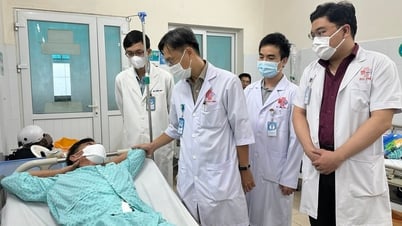
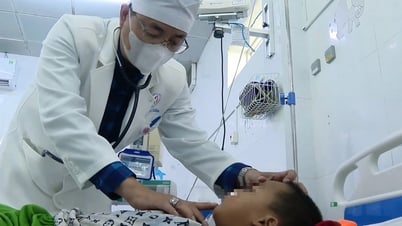

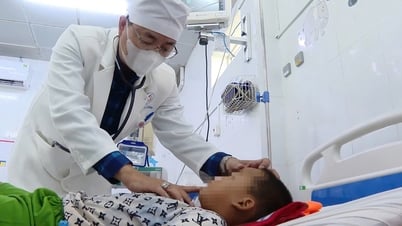
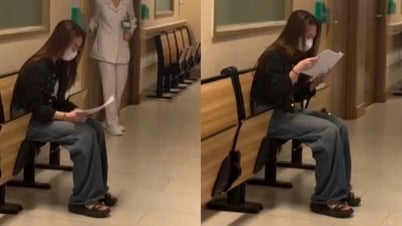
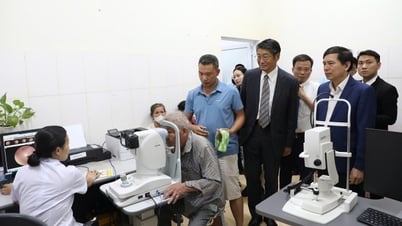






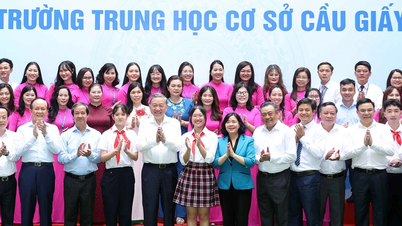
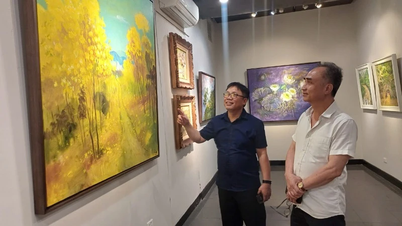

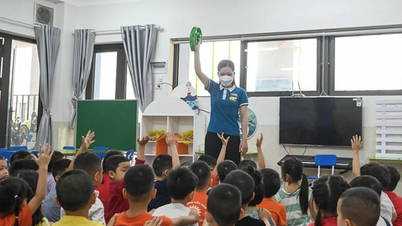










































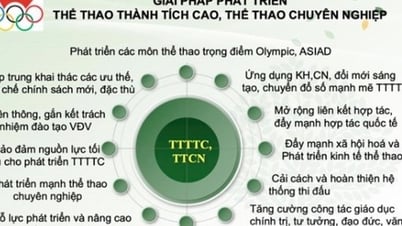


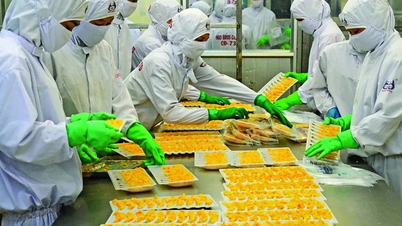




















Comment (0)